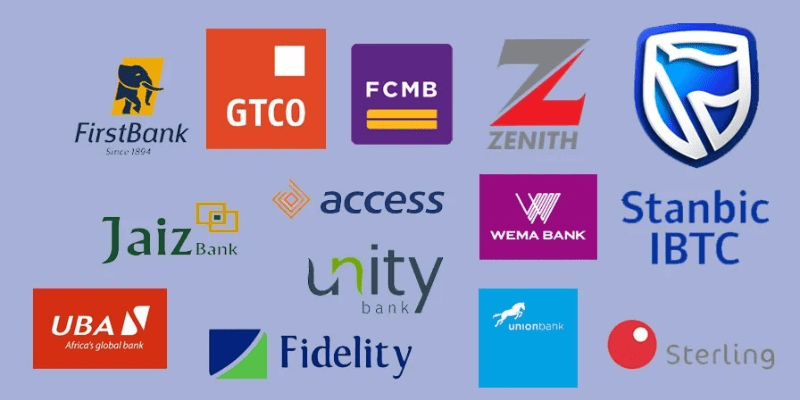A recent analysis of the annual reports of ten financial institutions shows that in 2023, digital banking channels contributed approximately N438 billion to their revenue.
Compared to the previous year, the income generated from electronic transactions by these banking groups increased by 37.54%, up from N318.64 billion.
E-business income encompasses revenue from various electronic channels, card products, and associated services.
These channels include mobile applications, USSD channels, ATMs, agency banking, internet banking, point of sale payments, as well as credit and debit card transactions.
The surge in electronic business income can be attributed to the growing popularity of mobile and online banking in Nigeria.
Among the financial institutions analyzed by NewsNow were FBN Holdings, Access Holdings, Guaranty Trust Holding Company, United Bank for Africa, Zenith Bank, Wema Bank, Fidelity Bank, FCMB Group, Stanbic IBTC Holdings, and Sterling Financial Holdings Company.
Leading the pack in revenue from electronic banking was UBA, which saw its earnings increase to N125.58 billion compared to N78.94 billion in 2022.
Conversely, IT support and related expenses for these banking groups rose by 148% to N23.19 billion from N9.32 billion in the previous year.
Access Holdings reported an income of N101.62 billion from its electronic business in 2023, representing a 70.34% increase from the previous year.
During the same period, the group’s expenses on IT and e-business also saw an uptick to N78.05 billion from N44.63 billion in 2022.
FBN Holdings’ audited statements revealed earnings of N66.34 billion from its electronic business, surpassing N55.09 billion in the prior year.
According to the bank’s annual report, electronic banking fees played a significant role in boosting its fees and commission income.
Zenith Bank recorded N51.82 billion in earnings from electronic banking fees in 2023, a 13.29% increase from N45.74 billion in the previous year.
The bank also witnessed an 8.48% rise in its spending on information and technology, reaching N33.59 billion from N30.97 billion in 2022.
GTCO’s income from electronic business rose to N40.83 billion in 2023 from N37.74 billion in the preceding year, while its communication, administrative, and technological expenses increased to N50.24 billion from N42.39 billion.
In 2023, FCMB reported revenue of N17.69 billion from electronic fees and commission, up from N13.99 billion in the prior year.
The bank’s IT expenditure almost doubled to N16.57 billion from N9.99 billion.
Fidelity Bank saw its earnings from e-business climb by 20.30% to N14.03 billion from N11.66 billion in 2022.
The bank also significantly increased its IT spending in 2023, which surged by 274.73% to N16.57 billion from N4.42 billion in the previous year.
Sterling HoldCo reported N8.588 billion from e-business commissions and fees in the last year, up from N7.16 billion in 2022.
Wema Bank, known for being the pioneer of Africa’s first fully digital bank, ALAT, saw its electronic product fees rise to N7.35 billion from N6.13 billion.
However, its spending on technology and alternative channels decreased by 1.84% to N1.42 billion.
Among the reviewed banking groups, Stanbic IBTC Holdings’ income from electronic business was the lowest at N4.42 billion, higher than N2.51 billion in 2022.
Conversely, the expenditure on information technology for Stanbic IBTC Holdings rose to N19.34 billion, indicating a 42.93% increase from the previous year.
On a separate note, the latest Gross Domestic Product data highlights the continued growth in the contribution of financial services (finance and insurance) to the GDP.
Analysts attribute this growth to the increasing adoption of technology in the sector.
Dr. Afolabi Olowookere, the Managing Director/Chief Economist at ADSR, mentioned in an interview with NewsNow, “The financial sector and ICT have experienced growth post-COVID-19, with people conducting more transactions online, leading to an increase in their contribution to the GDP.”











